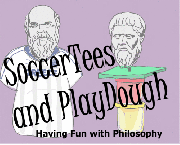You are currently browsing the tag archive for the ‘Einstein’ tag.
One aspect of religion that I think should be somewhat surprising is the conjunction of two seemingly unrelated aspects: that of wonder or awe at the power, beauty, and mystery of the universe and the feeling of being morally compelled to engage in certain behaviors (and to avoid others). Why should reverence be tied to morality?
In the first chapter of The God Delusion, Richard Dawkins distinguishes the object of his criticism, which he sometimes refers to as ”supernatural religion,’ from his own religious or spiritual sensibilities, a perspective that he calls Einsteinian religion. Einstein often used the word ‘God’ when talking about his fundamental appreciation of the power and mystery of the world. (Dawkins thinks that Einstein’s choice of terminology is regrettable since Einstein manifestly did not believe in a personal supernatural deity.) Famously, Einstein said, “I believe in Spinoza’s God who reveals himself in the orderly harmony of what exists, not in a God who concerns himself with fates and actions of human beings.”
Dawkins wants to simultaneously endorse the “pantheistic reverence” of Einstein and insist that such reverence does not entail a belief in anything supernatural. Dawkins is certainly right about this; the feelings of awe and wonder so well-articulated by Dawkins, Carl Sagan and other scientists do not have any obvious theistic implications. And I agree that a naturalist can be religious in this sense and not believe in anything supernatural.
What is conspicuously absent in Dawkins analysis, however, is any recognition of the other side of religious feeling; the sense that what we stand in awe of has some kind of legitimate authority over how we live our lives; that we are compelled by some source of authority outside of ourselves to change for the better–to bring our activities, thoughts, and emotions in line with the objective standard of Goodness, Righteousness, and Justice.
Perhaps because it is easier for conscious beings to understand other conscious beings, it is natural for humans to understand both of these aspects (awe and duty) in an anthropomorphic way. Theism is the view that the ultimate source of beauty, power, and creation is a person (a special kind of very powerful person, but a person nonetheless); and this view is coupled to the understanding of morality as the dictate of Divine Will. This deep connection between the feelings of awe and obligation would naturally lead a theist to be very suspicious of Dawkins and Einsteins religious sensitivities. The natural question to ask Dawkins would be whether that which he reveres in nature holds any ethical power over us. Does the feeling of transcendent wonder at the glory of the universe generate, as a matter of necessity, any sense of obligation in oneself toward the universe and its parts (or the transcendent glory)? There is no doubt that Dawkins does feel the compulsion of objective morality; he rightly points out that an atheist can recognize the power of objective moral values. The question is whether this appreciation of morality is connected to his feelings of wonder, awe, and reverence for the natural world.
Of course I believe that the Divine Command Theory is a failed understanding of the source of moral authority; the idea that moral obligation can be tied to divine will is as deeply flawed as the parallel view that the source of logical entailment could be found in the will of God. Nonetheless it remains that case that genuine religious feeling seems to involve not just awe and reverence but also an understanding that proper reverence requires us to examine ourselves and improve ourselves, to bring our behavior, thoughts, and values in line with an ultimate and external standard. This is why one of the tests of genuine religious experience is whether that experience brings about a change in attitude and behavior.
However, that these two feelings should be connected remains somewhat of a mystery to me: Why should an appreciation of ultimate reality entail a change in myself? I’ll leave that question for next time.


